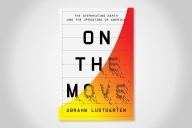You have /5 articles left.
Sign up for a free account or log in.
Part of this family vacation was spent snowed in in Boston. Hours of downtime that provided an opportunity to hang out at the Microsoft Store. Microsoft does not have any Apple Store competition at in the Prudential Center. Judging by the foot traffic in the store, Microsoft should welcome blizzards and other extreme weather events.
Working on a residential campus causes me to think a good deal about physical space. Without pushing the analogy too far, a campus and a store have some things in common. Campuses and stores share a paradox, in that online options have made the physical spaces more, not less, important. There is little reason to move to a campus, or shop at a physical store, unless the living/shopping experience is superior to what can be had online. We are moving to a future of bifurcated campus/store experiences - one in which the environment is either very upscale or very stripped down. Those campuses, and those stores, left somewhere in the muddy middle will be in the most trouble.
So where does the Microsoft Store fall out on the amenity rich (expensive and specialized) vs. stripped down (cheap and general) continuum? Actually, not so bad.
Microsoft needs to invest in high-end retail spaces for brand building purposes. It was clear from hanging out some at the Boston Microsoft Store that the company has put a great deal of thought and attention into its physical space. Most importantly, Microsoft has invested in hiring a (seemingly huge) cast of store employees, sales associates who were attentive, knowledgeable, laid-back, and hip. Anyone worried about robots taking tomorrow’s jobs should spend time at a Microsoft Store, as it becomes very clear very quickly that the value add of this type of retail experience is the knowledgeable and friendly employee.
So where can the Microsoft Store improve, and what (if anything) does Microsoft’s foray into retail tell us about our own bricks and mortar?
Suggestion 1 - Stop Copying Apple:
The Microsoft Store feels completely derivative of the Apple Store. There are the same tables with the gadgets available for play. The same sort of Genius Bar setup (I forget what Microsoft calls it). The same open spaces with lots of employees wandering around offering to help.
Microsoft should experiment with other types of store designs. If the Microsoft Store is primarily about branding, why not try some other layouts? Instead of tables, how about setting out a bunch of comfortable chairs and couches. Turn the Microsoft Store in to the Microsoft Cafe, and invite folks to sit around and play with the Surface 3 while sipping a cappuccino. Or give over a portion of the Microsoft Store to a makerspace. How about inviting folks to hang out in the store and log on to an edX or Coursera course, or sit at a table and get some work done? Microsoft should feel some freedom to experiment. To change things up, and to not take itself so seriously.
Could we create campus spaces with similar sorts of experimentation and flexibility that I’m advocating that Microsoft try for its retail outposts?
Suggestion 2 - Stop Displaying Crappy Computers:
The big reason that the Microsoft Store felt sort of buzzy, besides the blizzard, is that people seem to like the Surface Pro 3. Microsoft is on to something long-term in combining the computer and the tablet. The iPad was never built as a laptop replacement, and every time one of us tries to make the iPad our primary device we are going against the intent of its design. The ability to spend some quality time playing with a Surface Pro 3 is absolutely critical if Microsoft is going to convert users to the platform. It is not really intuitive that one device can play both a PC and a tablet role, and the only way to be convinced is to invest in some quality hands-on time.
Why then does Microsoft insist on giving over precious square feet to a bunch of cheap laptops? It seemed that half of the display / hands-on space of the Microsoft Store was given over to sub $300 ASUS and HP laptops. These machines may be great, but they are (by design) cheap. The Surface 3 Pro looks and feels like a quality product. It is brought down by sharing space with the disposable computers that happen to run Windows.
Does your campus have low-end workstations and computers sprinkled around public places?
Suggestion 3 - Buy a Cellular Company:
This last suggestion is maybe more fantasy than reality. The big advantage of the Apple Store is that the Apple Store sells iPhones. Nobody wants a Windows phone. But this could change. We all hate our cellular providers more than we like our phones. I’d buy a Windows phone in a second if that meant not getting ripped off by Verizon, AT$T, Sprint, etc. Microsoft should find some way to offer cellular customers a good deal on data and voice. A deal where you pay for what you use, are not locked in, and where the price for everything is reasonable.
Does our horrible cell phone company reality in the U.S. hold any lessons for U.S. higher ed? Probably not. There is a great article from Bloomberg View called "Why Does U.S. Cell Phone Service Stink?” Compared to other markets, the U.S. has little cellular competition, inadequate government oversight, and poor consumer protections. We are lucky in higher ed that we have lots of competition, although we could argue about the proper role for government involvement.
Where we can learn from Microsoft’s mobile problems is just how much missing the shift to mobile hurts every part of Microsoft’s business. The lack of a credible mobile play significantly diminishes the utility of Microsoft’s retail operation. Going forward, we will need to pair our beautiful (and expensive) campuses with robust mobile learning platforms. The nicest academic and student life buildings will be inadequate to attract tomorrow’s students to our campuses in the absence of equally high-end mobile learning options.
What has been your experience browsing at a Microsoft Store?

Want articles like this sent straight to your inbox?
Subscribe to a Newsletter







